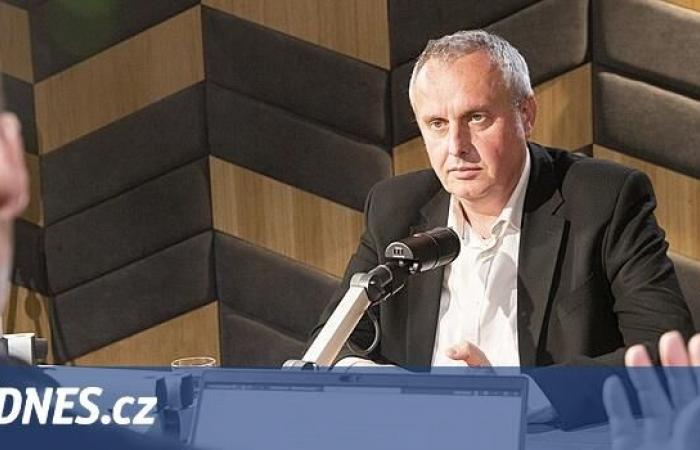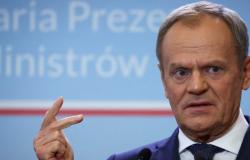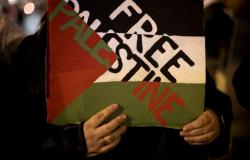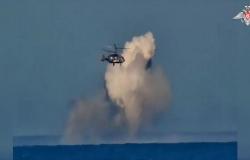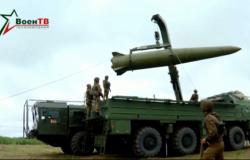According to Tomáš Pojar, the Czech government is already trying to get arms companies to expand production. “So that, for example, they have enough orders. Of course, one of the customers is the Czech army, but they sell far more elsewhere. A lot within the countries of the North Atlantic Alliance or the European Union, and the Czech government helps our armorers in this.”
“The stronger our armorers are and the more they produce here at home on our territory, the safer it will be for the future. So yes: we are interested in arms production growing,” says the prime minister’s adviser.
The army business is beginning to “smell” to the banks
“This year we are supposed to spend two percent of the GDP on defense, and I firmly believe that this money will be invested wisely, in such a way that a significant part will remain in the Czech economy, in the armaments companies that operate on our territory. And certainly Czech arms factories have the capacity to increase production,” says Pojar.
And are the big banks starting to smell “army business”? “Their perspective is really changing, of course it’s up to the individual banks, but a lot of them have really shifted in their thinking and I hope others will follow.”
According to Pojar, investments in Czech defense are key. There is a danger that in case of success in Ukraine, Russia could attack the Czech Republic as well. “There can be no doubt that he will continue. Russia says it quite openly and has it in its doctrine as well.”
According to him, the time of peace ended a few years ago and the world is becoming more and more unstable. “The biggest conflict since World War II is raging on the European continent. But in order for Russia to be stopped, they must see that they have a big, strong, determined and well-armed adversary against them, and then they will not try to attack.”
According to the Prime Minister’s adviser, Russia behaves like a predatory country. “And every predator, when they feel weakness and blood somewhere, they just have to attack and try to achieve something. But if, on the other hand, they see strength and determination, then the conflict does not have to happen.”
The Czech Republic will not send soldiers to war
Polish Foreign Minister Radosław Sikorski recently attracted attention by announcing that NATO troops are already in Ukraine. He also said that the presence of Alliance forces in Ukraine is not unthinkable. He responded to the words of French President Macron, who did not rule out sending Western troops to Ukraine.
According to Pojar, this is a legitimate proposal to which the Czech Republic will not join. “But I add that there is no NATO soldier. They are soldiers of individual member states, and I don’t know if there is anyone like that in Ukraine. In any case, Czech soldiers are not in Ukraine, nor are they going there.
“But if France decides that French soldiers in Ukraine will, for example, train local soldiers, then it is fully within their right and no one else can and should not have a say in it. So it is up to the bilateral agreements of the individual countries if they will do so, and I do not rule out that some countries may do so in the future. But at the moment I don’t know that that would be the case, and the Czech Republic is not one of the countries that would plan something like that,” explains Tomáš Pojar.
According to him, Russian President Putin will now try to conquer the maximum part of Ukrainian territory before the American presidential elections. “He will want to destroy Ukraine as much as possible, especially economically. To demoralize it, to cause as many human victims as possible, whether in the ranks of Ukrainian soldiers or Ukrainian civilians.”
“And I hope that the Ukrainians will manage to stop it and that Russia will not advance and will not succeed in some dramatic breakthrough,” added the adviser.
Fresh President Biden
In Rozstrel, Pojar returned to the Prime Minister’s visit to the USA. He accompanied Petr Fiala to key meetings, including the most important one: with President Biden at the White House.
“He seemed fresh to me. That interview was longer than it should have been. President Biden jokingly responded several times that we even had a good laugh. Yes, he spoke softly, but it was a detailed conversation, completely to the point. And it was a great conversation for Czech-American relations and their deepening,” recalls Pojar.
“So in this, we met a fresh American president, moreover, someone of such an age… You know, I wish I could be this fresh in my seventies, if I live to see them,” the prime minister’s adviser pointed out.
“And that someone will call us Czechoslovakia? We should be lenient with how we know other countries and if we even distinguish countries on the other side of the world. When Joe Biden first visited us, we were Czechoslovakia. The next generations will not have it that way,” says Pojar.
“It rather bothers me that Americans or anyone from an anglophone background do not say Bohemia, but “Čecia”. So I would rather focus on this,” says the advisor.
He assessed Prime Minister Fiala’s visit as a great success. “The last time we enjoyed such attention in the US was in the nineties. The interest in us was unprecedented, even in light of what was happening in the world, i.e. that it was a day or two after Iran’s attack on Israel,” recalls Pojar, adding that the Czech delegation eventually had to meet with some congressmen due to excessive interest refuse.
China is not an immediate threat
At the end of the Shootout, an important question was asked: which countries now represent the biggest security threat to the Czech Republic? Is it still true that it is Russia and China? Or has something changed after Pojar’s visit to China?
“I never considered China an immediate security threat. Russia is the one for us, and for the long term. And more and more, another security threat, specifically external, is terrorism, which has its roots in the Middle East,” the prime minister’s adviser answers.
“But the immediate threat is that Russia will conquer Ukraine, that it will continue to Moldova, that it will see that the West is weak, that it will not stop and go where it declares, that is, before 1997. What does this mean? That Russia recognized the unification of Germany after the collapse of the Soviet Union, therefore recognized that East Germany is also part of the European Union and the North Atlantic Alliance. And that’s all. He claims the others back,” concludes Tomáš Pojar.
Why did Prime Minister Fiala not meet Donald Trump in the USA? How do they perceive the Czech ammunition initiative in America? And shouldn’t Russia and Ukraine finally start negotiating for peace? Tomáš Pojar answered that too in Rozstrel.

